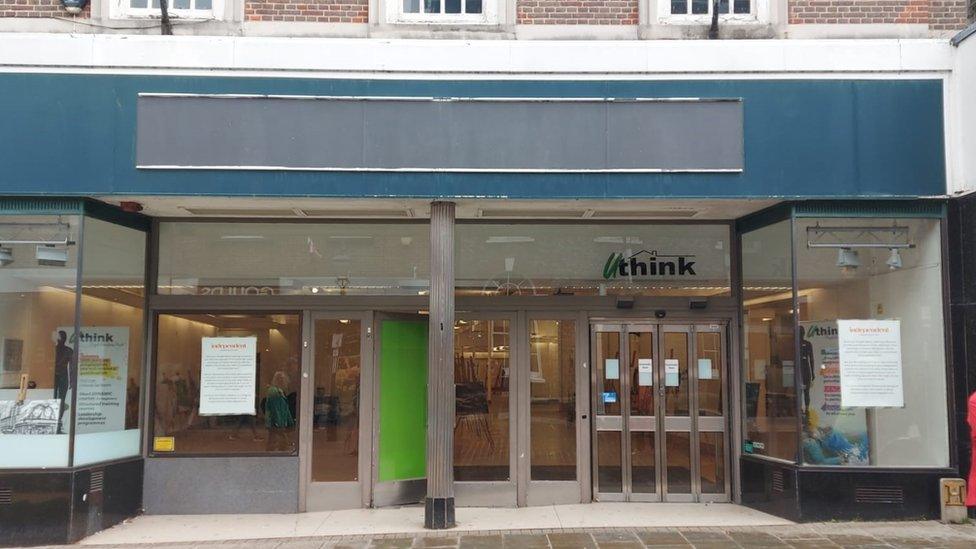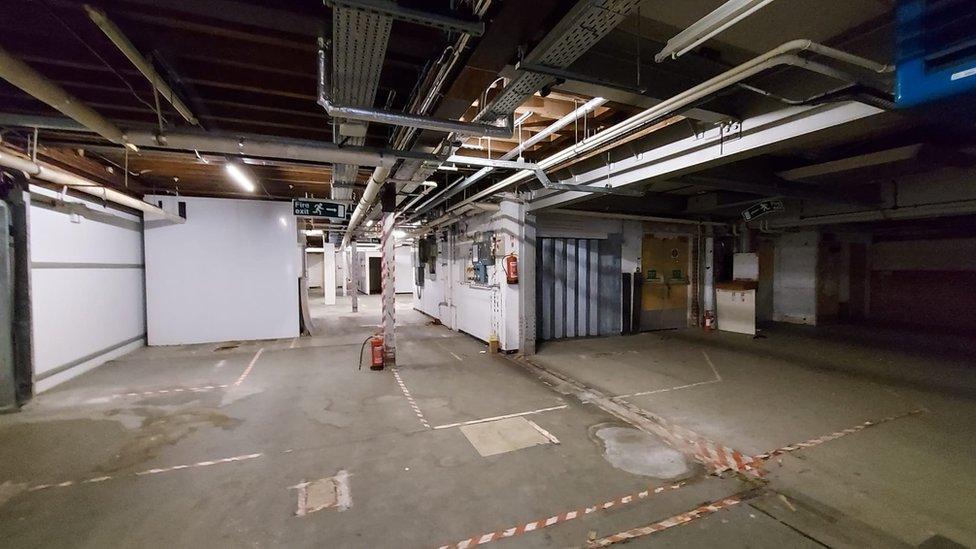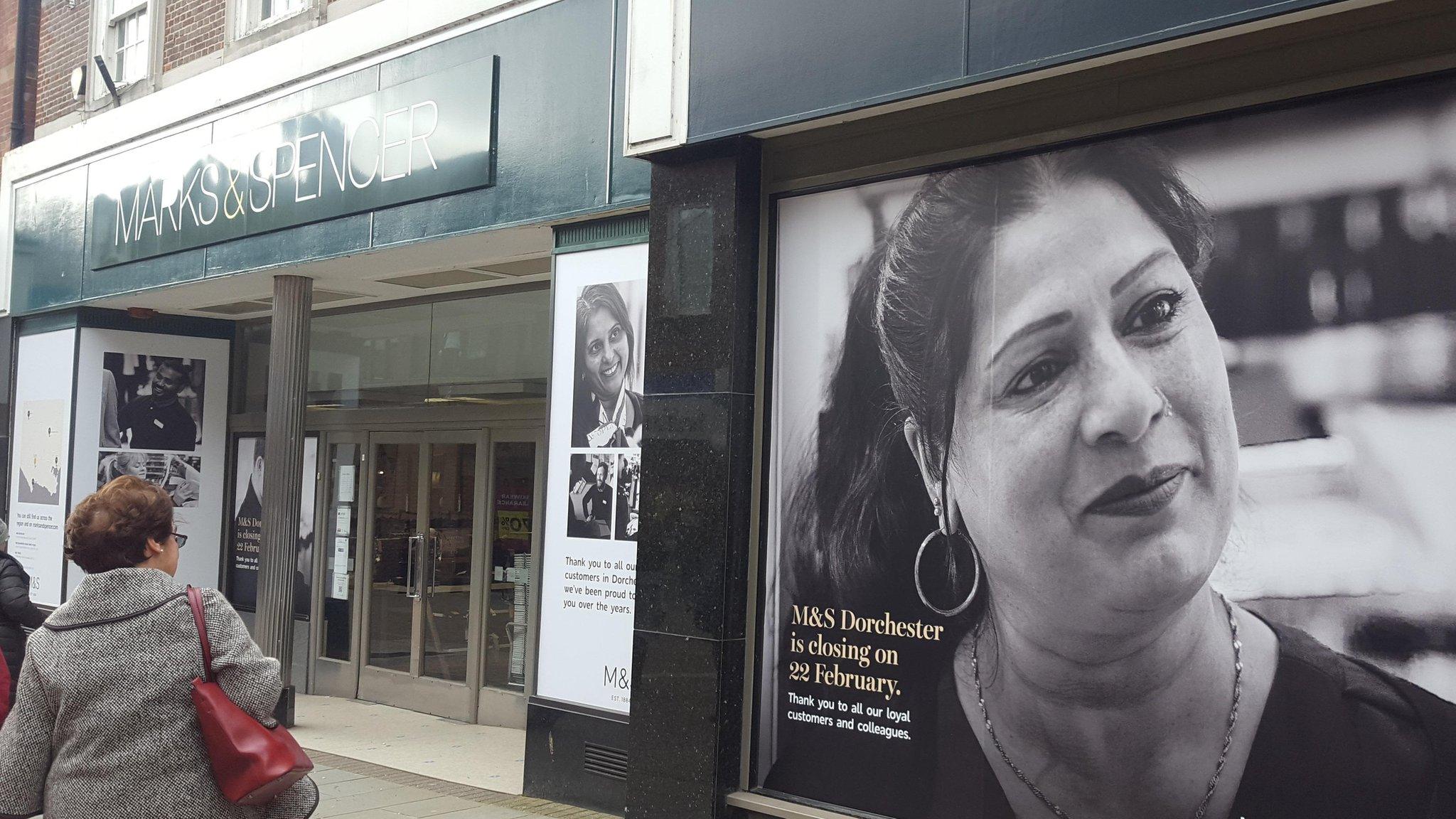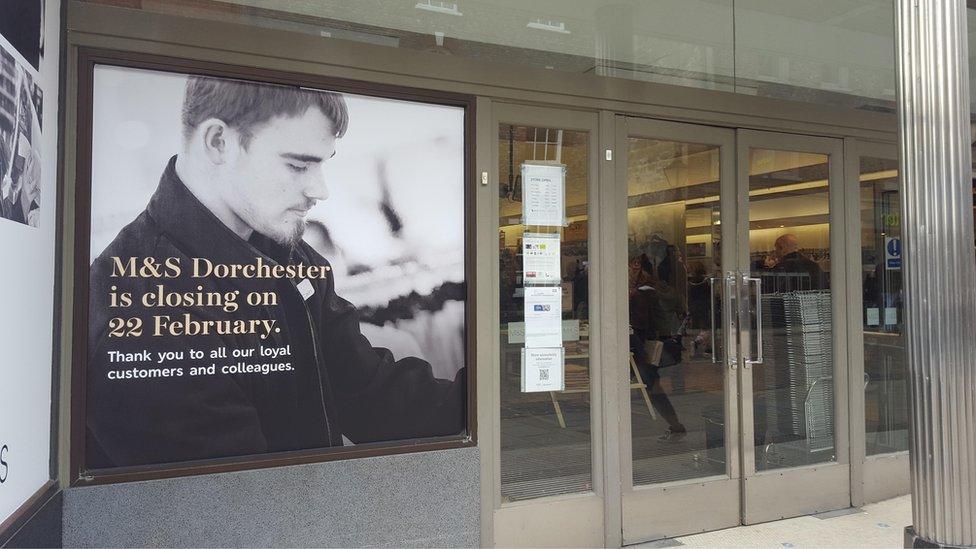Dorchester Premier Inn plan will see M&S store demolished
- Published

The former Marks and Spencer store is currently occupied by a charity
A major retail space in Dorset's county town is set to be demolished and replaced with a Premier Inn under plans by the hotel chain's owner Whitbread.
The former Marks and Spencer store in Dorchester's pedestrianised shopping street has been occupied by a charity since the retailer pulled out in 2020.
Whitbread said it proposed "a full demolition and sensitive redevelopment" after the building fell into disrepair.
Dorchester Chamber of Business has welcomed the plans.
Louise Woodruff, property acquisitions manager at Whitbread, said: "We have explored retaining parts of the building, but the building's condition and original use as a shop make this unlikely.
"Therefore, it is likely that we will be proposing a full demolition and sensitive redevelopment, to provide a sustainable and purpose-built hotel, that meets both our needs and the needs of our guests."

Whitbread said the buildings had fallen into disrepair
Chamber of Business vice president Steve Bulley said: "I think, on the whole, it's a positive thing for the town.
"We have to understand that the days of a high street full of retail shops have probably gone."
But Catriona Chainey, who runs Found bistro, said: "I think it's a complete waste of space. We don't need another large branded hotel in the middle of Dorchester."
The site in South Street is made up of two buildings - one was built in the 1930s to replace the existing Marks and Spencer store. The shop was extended into the adjoining Victorian building in the 1960s.
During construction in 1936, workmen found what became known as the Dorchester Hoard - a cache of 22,000 Roman coins buried in the foundations of a Roman house.
Jackie Halewood, principal archivist at Dorset History Centre, said: "The site is a good example of the development of Dorchester - built on the Roman town of Durnovaria, there was a Georgian-era with house and garden plots, then the rise of shopping in the Victorian period, and later you've got the 1930s development of department stores."

Follow BBC South on Facebook, external, Twitter, external, or Instagram, external. Send your story ideas to south.newsonline@bbc.co.uk, external.
Related topics
- Published1 March 2023

- Published22 February 2020

- Published31 May 2022
